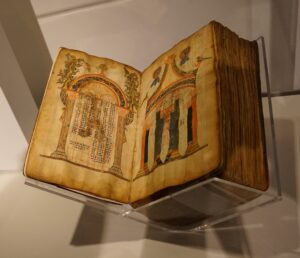By Kevork Keushkerian
GLENDALE, Calif. — Poet Jaque Hagopian’s book presentation, Tekeyan, In Search of God, took place on Sunday, September 13, at the Glendale Public Library. The event was organized by the Tekeyan Cultural Association’s (TCA) Los Angeles Chapter.
Mistress of Ceremonies Lora Kuyumjian welcomed the audience and pointed out that this book was the 12th publication of Tekeyan Cultural Association, sponsored by the newly-established Yervant Azadian Literary Endowment Fund. She then invited to the podium the first speaker of the evening, Parsegh Kartalian, to introduce Jaque Hagopian, the author.
Kartalian had known the author early on, from the days when they were both in Cairo, Egypt. He noted that Jaque Hagopian was born in Jerusalem in 1917 and once in Cairo, he mastered the Arabic Language to be able to be admitted to the Fouad I University. He graduated from that prestigious institution with a degree in pharmacy.
Kartalian then dwelled upon the close relationship the author had with the prince of Armenian poetry, Vahan Tekeyan. It was this intimate acquaintance that eventually gave birth to the idea of writing this book, he mentioned.









